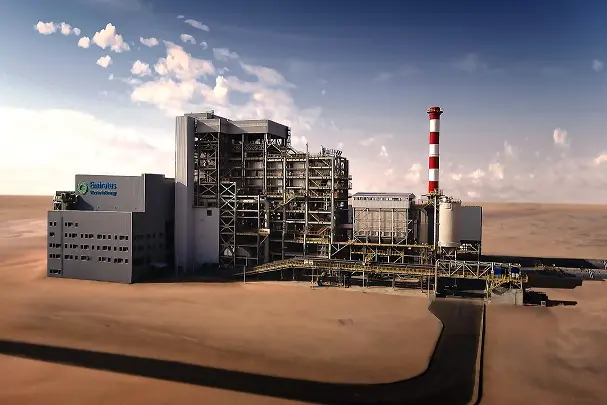PHOTO
SHARJAH -- The Sharjah Waste-to-Energy (WTE) plant stands as a testament to the UAE's commitment to sustainable solutions and low-carbon growth. This groundbreaking initiative, the first of its kind in the Middle East, has taken significant strides in transforming waste into a valuable resource for energy production.
As the UAE gears up to host COP28 from 30th November to 12th December 2023, the spotlight falls on the WTE plant, symbolising the nation's commitment to sustainability and environmental protection. Launched in 2022, this pioneering initiative has made significant strides in promoting sustainable waste management practices and minimising environmental impact. The following report delves into the achievements of the Sharjah WTE plant.
A profound grasp of the significance of sustainability
This journey began with a deep understanding of the importance of sustainability and the need to reduce the environmental footprint. While 60% of emissions in the UAE are generated by general and industrial waste accumulated in landfills, the Sharjah WTE plant has succeeded in processing more than 100,000 tonnes of waste in just one year, which is equivalent to the waste generated by 180,000 people annually. The plant also recovered over 250 tonnes of metal during its operations. As a result, Sharjah has achieved a new record in its zero-waste to landfill journey, achieving a waste diversion rate of 90 percent.
Khaled Al Huraimel, Group CEO of Beeah Group, said in a statement to the Emirates News Agency (WAM) that the Sharjah WTE plant is not just an environmental achievement, but also an example of the innovation and leadership that characterises the emirate of Sharjah and the UAE. It represents a significant step towards achieving the UAE's goals of diverting waste from landfills and the strategic initiative to reduce emissions and achieve carbon neutrality by 2050.
He said that since it was inaugurated by H.H. Dr. Sheikh Sultan bin Muhammad Al Qasimi, Supreme Council Member and Ruler of Sharjah, the plant has been following a steady and unwavering commitment to achieving sustainable waste management and supporting efforts to protect the environment, culminating in strengthening the country's efforts to lead global efforts to achieve carbon neutrality.
Al Huraimel added that the plant was not just an environmental solution, but also a way to provide clean and sustainable energy. It was able to generate enough electricity to power more than 28,000 homes in the emirate of Sharjah through its connection to the Sharjah Electricity, Water and Gas Authority (SEWA) network.
He pointed out that the Sharjah WTE plant is one of the national projects that achieve the future vision of the state by reaching carbon neutrality and investing in available opportunities and innovative ideas to enhance the sustainability of resources for future generations. The plant has achieved a number of qualitative achievements since its opening, as it has managed to offset 150,000 tonnes of harmful carbon dioxide emissions. These and other achievements by the plant have contributed to the rise in conversion rates to useful products that contribute to the circular economy in cooperation with Beeah's recycling programme.
He remarked that the Sharjah WTE plant stands as a beacon of positivity, serving as a testament to the feasibility of groundbreaking solutions to environmental issues. He emphasised that genuine commitment and collaboration can bring about positive transformations in our world. He stated that the station was the product of great efforts by the Emirates Waste to Energy Company, a joint venture between Bee'ah, the Middle East's leading and award-winning environmental management company, and Masdar, a subsidiary of Mubadala Investment Company and a pioneer in sustainable urban development.
He explained that this partnership aims to explore the prospects of developing more similar plants in the UAE and the region and providing solutions to divert waste away from landfills and achieve carbon neutrality.
Ambitious Achievements
The Sharjah Waste to Energy plant, the first plant of its kind in the Middle East, has received the "Future Fit Seal" awarded to government entities and national companies that design and implement exceptional, clear, specific and practical projects that enhance the UAE's readiness for the future.
Future Fit projects are assessed by the Government Development and The Future Office based on six key criteria: Human-Centered Approach, Economic and Social Value, Sustainable Practices, Proactivity and Innovation, Adaptability and Digital Readiness.
The Sharjah WTE Plant is located within the Bee'ah waste management complex in the Al Sajja area of Sharjah, where several other waste recycling facilities are also located, which support Bee'ah's efforts to divert all waste from landfills.





















